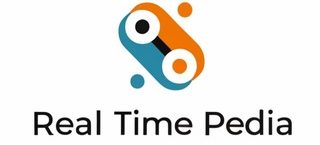Higher education can be a significant financial burden, but there are tax credits designed to lighten that load. If you’re a college student or the parent of one, understanding these tax credits can lead to substantial savings on your federal tax return. In this blog post, we’ll break down the key tax credits available, how to qualify, and tips for maximizing your benefits.
Understanding Education Tax Credits
Tax credits for college students are designed to reduce the amount of tax you owe, making higher education more affordable. Unlike deductions, which lower your taxable income, tax credits directly decrease the amount of tax you owe dollar-for-dollar. Here are the primary tax credits available:
1. American Opportunity Tax Credit (AOTC)
The American Opportunity Tax Credit is one of the most valuable education tax credits available. It provides up to $2,500 per eligible student, and 40% of that credit (up to $1,000) can be refunded to you if the credit exceeds your tax liability. The AOTC is available for the first four years of post-secondary education, and it covers expenses such as tuition, fees, and course materials.
Eligibility Requirements:
- The student must be pursuing a degree or recognized education credential.
- Must be enrolled at least half-time for at least one academic period beginning in the tax year.
- The student should not have finished the first four years of higher education at the start of the tax year.
- The credit is phased out for single filers with a modified adjusted gross income (MAGI) above $80,000 and married couples filing jointly with a MAGI above $160,000.
2. Lifetime Learning Credit (LLC)
The Lifetime Learning Credit offers up to $2,000 per tax return (not per student) for qualified education expenses. This credit is more flexible than the AOTC as it can be used for all years of post-secondary education, including graduate school, and for courses to acquire or improve job skills.
Eligibility Requirements:
- There is no limit on the number of years you can claim the LLC.
- The student does not need to be pursuing a degree or credential.
- The credit is phased out for single filers with a MAGI above $59,000 and married couples filing jointly with a MAGI above $118,000.
Comparing AOTC and LLC: Which One Should You Choose?
While both the AOTC and LLC are valuable, they can’t be claimed for the same student in the same year. Therefore, it’s crucial to choose the credit that offers the most benefit based on your circumstances.
- AOTC is generally more valuable if you are within the first four years of college, as it provides a higher maximum credit and has a partially refundable component.
- LLC is ideal for students who are pursuing graduate education or professional development courses, or for those who are beyond the first four years of their college education.
Tips for Maximizing Your Education Tax Credits
- Keep Accurate Records: Ensure that you keep detailed records of your tuition payments and other qualified expenses. Form 1098-T from your educational institution will help you with this.
- Understand Qualified Expenses: Not all educational expenses are covered. Typically, tuition, fees, and course materials required for enrollment are qualified, but room and board, transportation, and other personal expenses are not.
- Plan Ahead: If your income is near the phase-out threshold, consider strategies like deferring income or making retirement contributions to stay below the limit.
- Coordinate with Other Education Benefits: If you’re using scholarships, grants, or other tax-free educational assistance, be mindful that these can reduce the expenses eligible for the AOTC or LLC.
- Seek Professional Advice: Tax laws can be complex, and the penalties for errors can be costly. Consulting with a tax professional can ensure you’re maximizing your benefits and complying with all regulations.
Conclusion
Navigating the world of education tax credits can feel overwhelming, but understanding the AOTC and LLC can lead to significant savings on your tax return. Whether you’re just starting your college journey or are continuing your education, these credits are valuable tools to help reduce the financial burden of higher education. Make sure to keep accurate records, understand the eligibility requirements, and consult with a tax professional to ensure you’re getting the maximum benefit.

